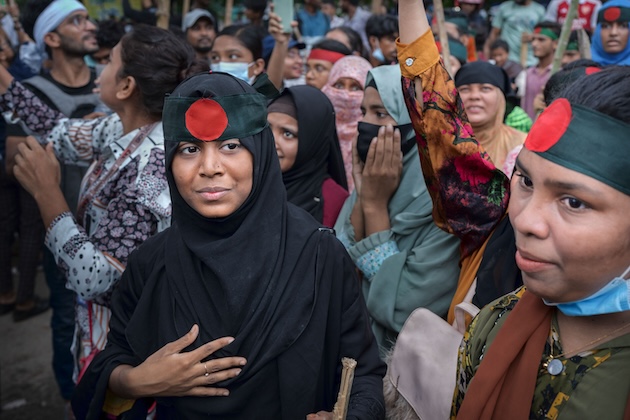DHAKA, Aug 14 (IPS) – Justice for all those who died and suffered injuries during the recent student-led quota reform movement in Bangladesh and reforms to the systems to ensure that this justice takes place are not negotiable, an adviser to the Bangladesh interim government, Syeda Rizwana Hasan, told IPS in an exclusive interview
“The interim government has decided to ensure justice and it will be very transparent. Justice will be ensured not only for those who were killed and injured but it will accurately bring the perpetrators to justice so that innocent people are not affected.”
Hasan was sworn in as an advisor to Nobel laureate economist Muhammad Yunus’ interim government after the resignation of Bangladesh Prime Minister Sheikh Hasina on August 5, following weeks of deadly protests that, according to reports, left at least 300 people dead. She is an award-winning environmental lawyer known for her activism and is also the Minister of Environment, Forest and Climate Change for the interim government.
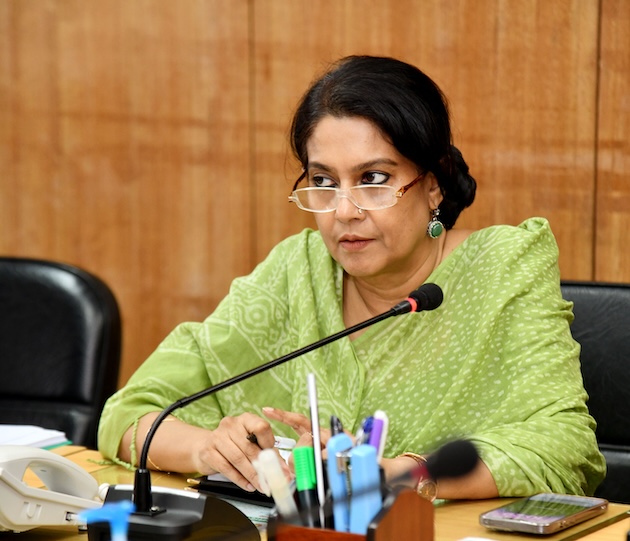
Reform of Security Sector
Hasan mentioned that the reforms needed in the security sector will be recommended through the trial process.
“Now we have to talk about the process of trial, which would be more transparent. One part of the trial has already started. The students detained during the movement will be released.”
News reports put the number of arrests at more than 10,000 since the protests began, including students and political opposition leaders.
“Whoever gave instruction to detain students, who directed to open fire (on students), leaving people so many dead and injured, and who commanded to put them (the six coordinators of the students’ movement) in the so-called custody of the DB (detective branch of police)—all will be probed so that the accused of directives cannot get relief.”
Hasan was referring to Nahid Islam, Abu Bakar Majumder, Asif Mahmud, Sarjis Alam, Hasnat Abdullah, and Nusrat Tabassum of the Students Against Discrimination Movement, who were arrested between July 26 and 28, 2024. The group was reportedly coerced to issue a statement of withdrawal from the protest movement while being detained for one week by the Dhaka Metropolitan Police’s (DMP) Detective Branch (DB). They were released on August 1.
Hasan said the trial would have the target of bringing about necessary reforms so that those accused of commanding these actions cannot make such directives in the future.
There was no reason for the government to open fire, she said, adding that the movement was non-partisan and was simply to address discrimination in the public service examination and appointment process.
She recalled that the first anti-quota movement was waged in 2018 and at that time, the Bangladesh government abolished the quota system in response to the student movement.
“But the then government, as clear as it was, wanted to again bring back the quota system so that it could use it, the reservation system, to get its own people into public service,” Hasan said.
She alleged that after the quota system was abolished, the government used the judicial system to bring it back.
In June 2024, the High Court ordered the reinstatement of the 30 percent quota for children of freedom fighters in a judgment that pronounced the 2018 abolition of quotas illegal.
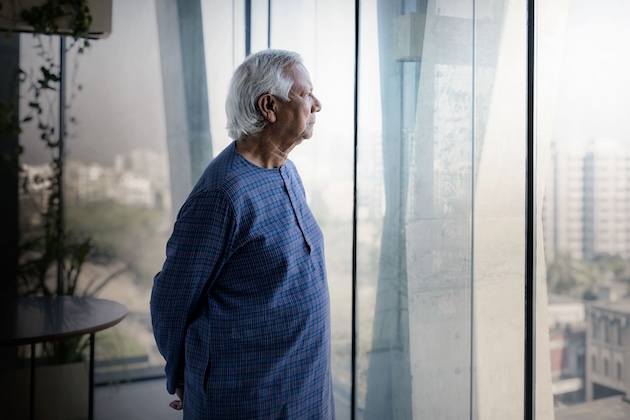
Students Fighting for Rights to Decent Work, End Discrimination
The students in Bangladesh were fighting for their rights—they have rights to get decent jobs and access to the job market without discrimination, she added.
“Why should a movement on a subject like this require any sort of firing by law enforcement agencies?” she asked, referring to the high death toll during the protests. “Why could not the government sit with the agitating students and solve the problem? I remind you again that the problem was once solved but they (the government) brought it back through a judicial verdict.”
She accused the previous administration of failing to act humanely and take into consideration the students’ concerns.
“They could have just consulted the students. But instead of inviting the students for discussion, what they did was blame the judiciary,” she said.
Hasan asserted that one judge reportedly made the comment that a judgment of the High Court could not change because of public agitation on the streets.
“Why did he need to make such a comment? When I am the chief justice, I only talk about an issue that comes before me. Why do I make such a provocative comment that triggers more tension?” she asked.
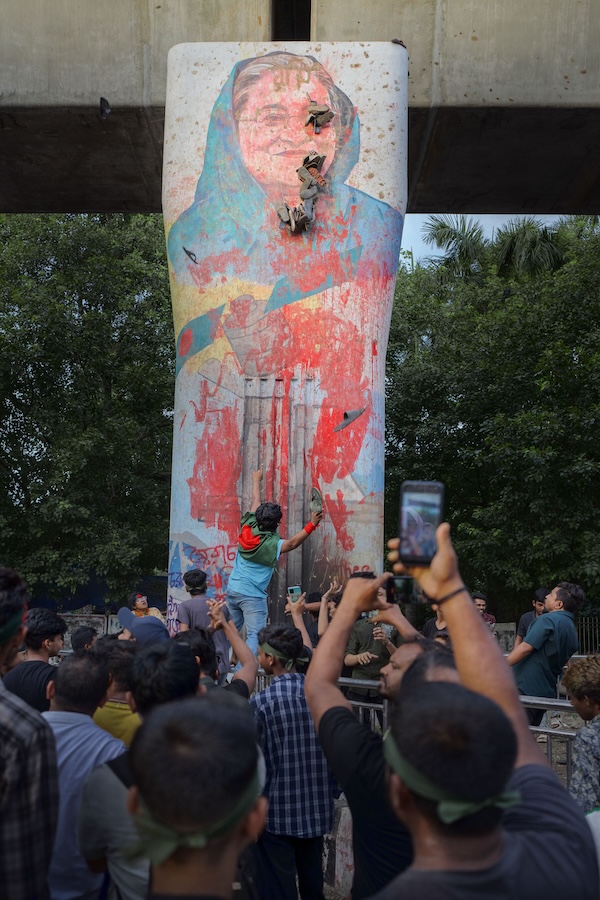
Open Discussions, Rather Than Open Fire
The comment, she said, showed that the entire power structure enjoyed unfettered power.
“They took it (the students’ movement) as their political opposition and they took it as a challenge to the authority, which was not the case at all,” Hasan said.
“And it was not that police opened fire for one day but they kept on opening fire and that was when it turned into a public revolution,” Hasan said.
She described that initially it started as a students’ movement and then it turned into a revolution where all the parents and all those who were angry with the government joined it.
The government could have and should have handled the situation better. It claimed it was also against the quota. If it had opened discussions instead of opening fire, the situation would have been different for all.
“We are standing on the blood of many students—the dead bodies of at least 500 Bangladeshis. Bangladeshis will remember what their own forces have done to their own people.”
“One outcome of this has been the departure of the fascist regime. That, to some extent, has consoled people that we have finally gotten rid of the fascist regime. However, for us to get back to some degree of psychological normalcy, we really need to ensure justice. We really need to ensure the culprits get punished. We really need to do the reform in security forces so that never ever again in the history of Bangladesh excess force is applied,” the adviser said.
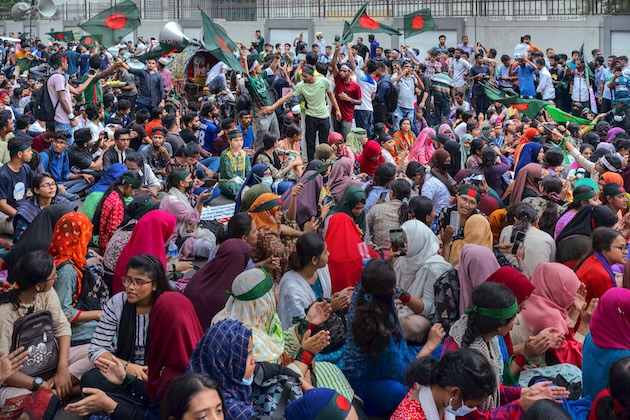
No Artificial Pretense of Democracy
Bangladesh has to go back to democracy and it must be such a democracy that it is an institutional process—it is not an artificial cosmetic namesake democracy but it has to be an actual one, she says.
Hasan, also an eminent environmental advocate, said Bangladesh needs reforms in law enforcement operations, the judiciary, administration and service delivery systems to establish an actual democracy.
“You have to ensure accountability and transparency. I believe the interim government will take these reform agendas very seriously. And once people see that their country has started functioning in a way that they have always wanted and that their country has started respecting ordinary citizens, I think only then will the situation calm down. There is no shortcut to this,” she added.
About the demands of the students, the adviser said the list of demands of the protesters was not very long but they were very profound.

